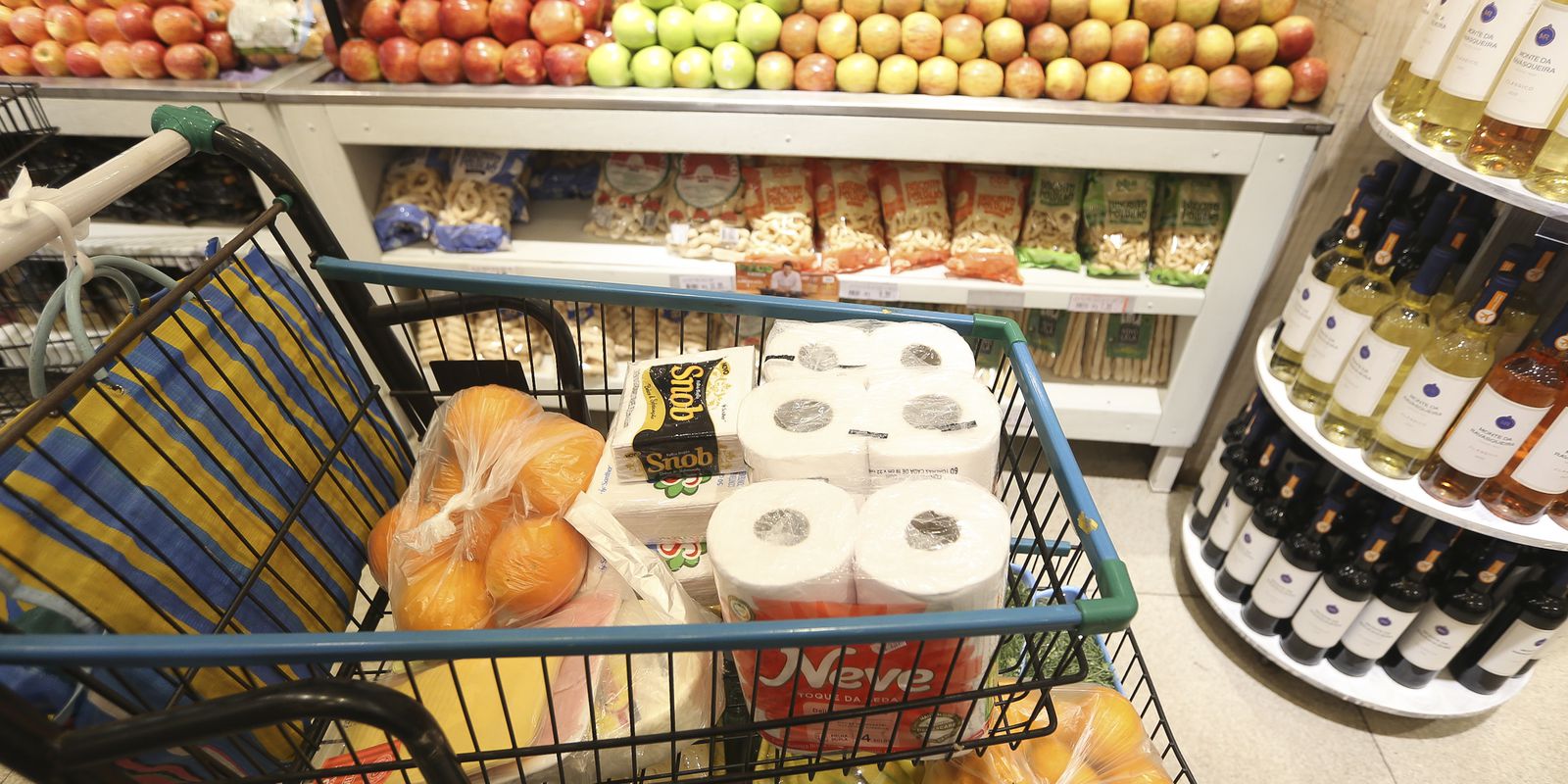Consumption in Brazilian homes, measured by the Brazilian Association of Supermarkets (Abras), ended the first two months up by 1.44%. In comparison with January, there was a decrease of 2%, attributed to the lower number of days in February. Compared to February 2022, there was an increase of 0.95%. The result includes the formats of cash and carry stores, conventional supermarkets, neighborhood stores, hypermarkets, minimarkets and e-commerce. All indicators are deflated by the Broad National Consumer Price Index (IPCA), measured by the Brazilian Institute of Geography and Statistics (IBGE).
According to Abras, during the first two months of the year the resources for the readjustment of the minimum wage, the maintenance of the value of R$ 600 of the income transfer program, as well as the number of beneficiaries; the payment of the gas aid (February) and the lower inflationary pressure on food prices contributed to a positive, but moderate consumption.
The entity estimates that what should support household consumption in the first quarter is the 7.42% minimum wage readjustment for more than 60 million people; the maintenance of the payment of BRL 600 from the Bolsa Família, the gas aid in the amount of 100% of the national average for the 13-kilogram cooking gas cylinder paid in February; redemption of PIS/Pasep (from February to December) and payment, as of March 20, of R$ 150 per child up to 6 years of age for families enrolled in income transfer programs.
“Other resources announced or under analysis by the federal government tend to be directed towards food consumption, such as the revision and expansion of scholarships in the area of education, the readjustment of civil servants of the Executive Branch and the new readjustment of the minimum wage from May 1st. For 2023, there should be, initially, a growth of 2.5% in consumption in homes”, said Abras.
According to data from Abras, the value of the basket of 35 products of general consumption (food, beverages, meat, cleaning products, hygiene and beauty items) registered a drop of 0.39% in February. With this variation, the national average price went from R$754.98 in January to R$752.04 in February. In the accumulated result for the year, the national basket has retreated by 0.31%.
In the two-month period, the decreases are more expressive for onions (31.82%) and tomatoes (6.30%), hind meat cuts (1.14%) and front (3.33%) and frozen chicken (1.71 %). Among the increases appear long life milk (4.31%), dish and mozzarella cheese (1.75%), eggs (2.55%), washing powder (2.55%), disinfectant (1.68% ), liquid dish detergent (1.22%), bleach (1.14%), soap (1.53%), toothpaste (1.20%), toilet paper (0.55%) and shampoo ( 0.50%).















